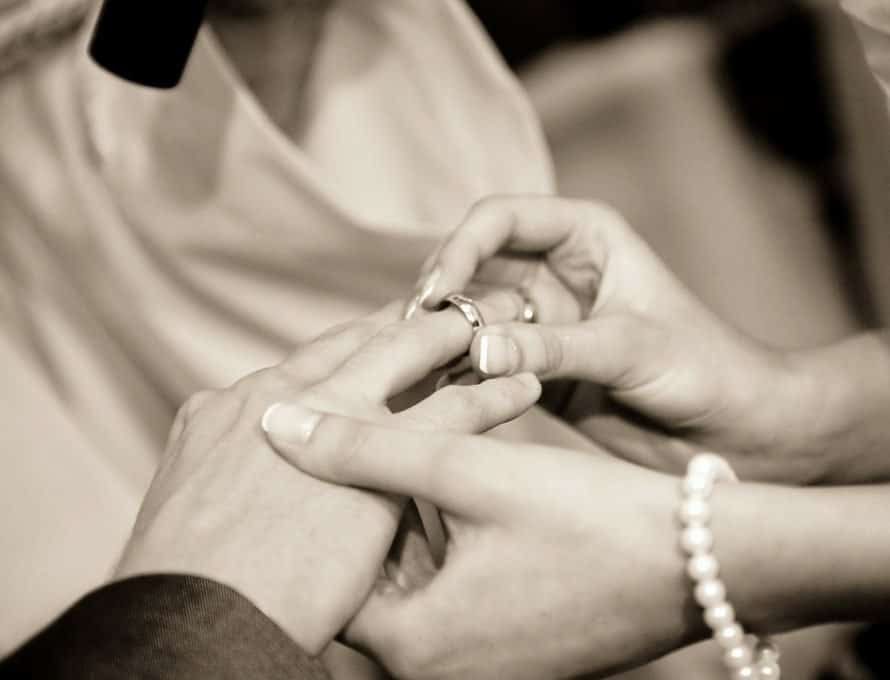JEFFERSON CITY – Even after the Supreme Court ruled that same-sex “marriage” is legally valid throughout the United States, most of the Missourians that are likely to vote in 2016 still believe that marriage should be between a man and a woman, according to a poll released by the Missouri Alliance for Freedom.
The survey, conducted by the Kansas-City based Remington Research company, polled nearly 800 likely voters throughout the state—representing those who live both in rural and urban settings, including Columbia, Joplin, Kansas City, Kirksville, Cape Girardeau, Hannibal, Springfield, St. Joseph and St. Louis.
Throughout the state, 71 percent of those who took the survey answered “Yes” when asked, “Do you believe that marriage should be between one man and one woman?” Of the cities listed above, St. Louis had the lowest number of people responding “Yes” to this question, although 64 percent of those polled still answered in the affirmative. In Kirksville, 100 percent of those polled answered this question affirmatively.
The poll also revealed the following:
• 53 percent of likely Missouri voters answered, “No,” to the question, “In your opinion, do you believe that the Supreme Court of the United States should be able to redefine marriage?”
• 65 percent of likely Missouri voters answered, “No,” to the question, “In your opinion, do you believe the federal government should be able to force a private business, like a baker or a florist, to provide services for a same-sex wedding if it violates his/her religious beliefs?”
• 61 percent of Missouri voters answered, “No,” to the question, “In your opinion, should same sex marriage be legal in Missouri?”
“From these numbers, it is clear that Missourian’s minds have not dramatically changed since they overwhelmingly approved an amendment defining marriage between a man and a woman,” the Missouri Alliance for Freedom said in their July 3 press release about the survey. In 2004, Missouri voters passed a state constitutional amendment by a 71-29 percent margin, defining marriage as only being between one man and one woman.
“For us this is a liberty issue,” the news release continued. “Will small business people and clergy be targeted by activists using the courts to compel them to violate their consciences? Freedom of speech and religion are essential and must be protected.”
This includes the religious liberty of Missouri’s county clerks, who were among the first to be impacted by the Supreme Court ruling, since they are tasked to certify marriage licenses in the state. In some states, county clerks have resigned to avoid compromising their biblical beliefs about marriage. For example, in Decatur County, Tenn., every employee in the clerk’s office resigned after the Supreme Court announced its ruling at the end of June.
Likewise, in Missouri, Waynesville deputy clerk Jennifer Schoenrock told World magazine in April that she was prepared to resign in order to abide by God’s Word.
Of course, this decision was not easy for Schoenrock, 56, and her husband, a disabled veteran, who depend on her salary to provide many of their needs.
Yet Schoenrock and other Missouri county clerks may not need to resign their positions in order to abide by their beliefs about marriage, according to Michael Whitehead, the Missouri Baptist Convention’s (MBC) chief legal advisor and principal of the Kansas City-based Whitehead Law Firm LLC.
Whitehead claims that state law protects the consciences of county clerks, allowing them to deputize another person to certify a marriage when it would violate their religious beliefs to do so themselves.
“Missouri Statute 59.257 has a simple process for appointing a deputy,” Whitehead said. “The Recorder might find another person in the courthouse willing to serve as deputy who has no conscientious objection. The recorder can set the salary or stipend to perform this additional, probably infrequent duty. The process may be fairly simple to have a letter signed by the recorder making the appointment, have it approved by the county commission or circuit judge, and have the deputy sign the letter containing the statutory oath.”
Whitehead insisted that county clerks should not have to lose their jobs because of the Supreme Court’s decision about same-sex “marriage.”
“A recorder should not be fired or have to quit a job they have done well for years, just because the Supreme Court has redefined the institution of marriage,” he said. “The government, as employer, has a legal duty to reasonably accommodate religious beliefs of employees, including such clerks and recorders.”
Whitehead suggested that those who “feel their revised job duties are forcing them to violate their conscience will want to talk to their pastors, and they may wish to contact (Alliance Defending Freedom at) 1-800-TELLADF for free legal advice and representation.”

